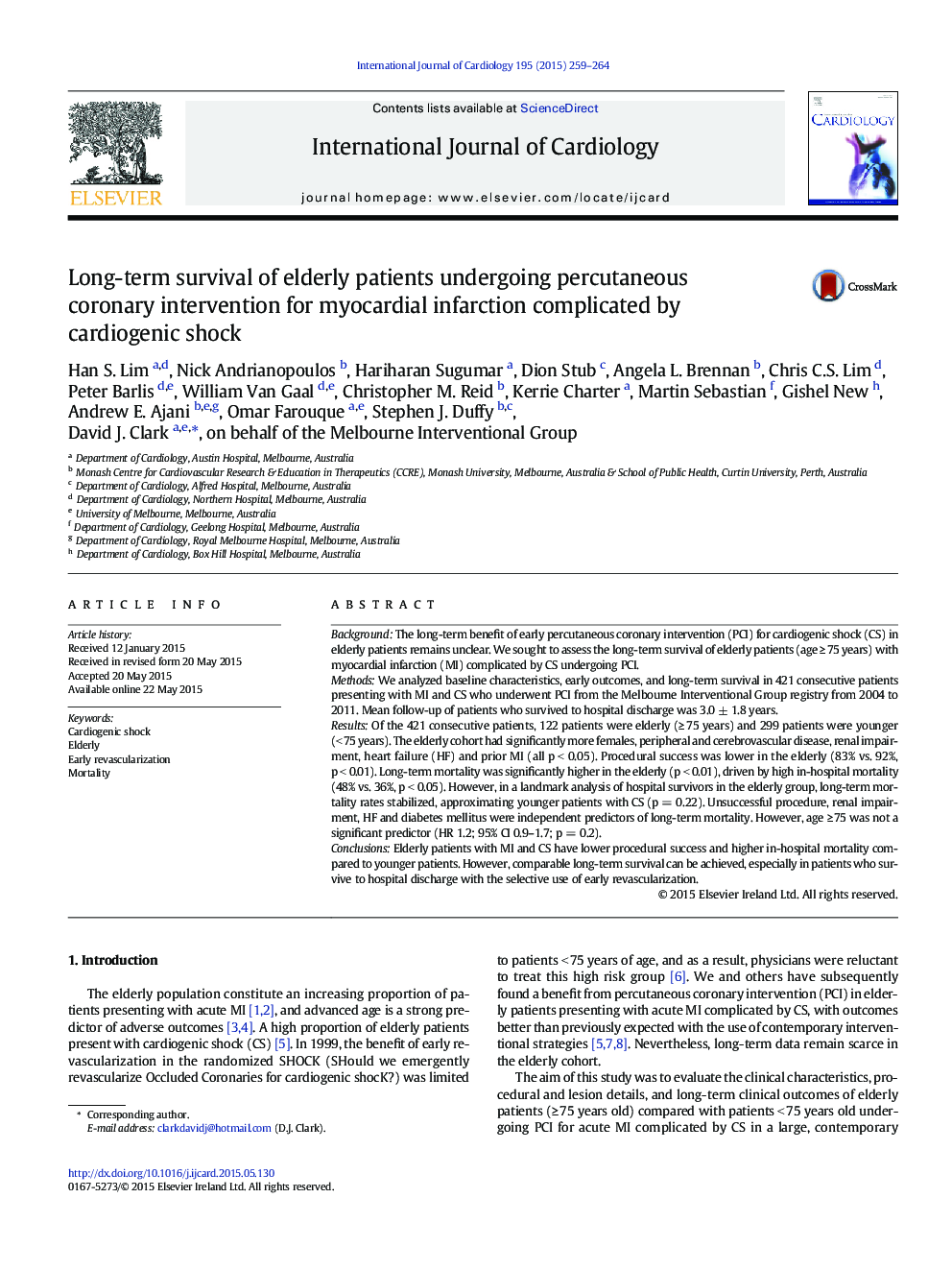| Article ID | Journal | Published Year | Pages | File Type |
|---|---|---|---|---|
| 5966145 | International Journal of Cardiology | 2015 | 6 Pages |
BackgroundThe long-term benefit of early percutaneous coronary intervention (PCI) for cardiogenic shock (CS) in elderly patients remains unclear. We sought to assess the long-term survival of elderly patients (age â¥Â 75 years) with myocardial infarction (MI) complicated by CS undergoing PCI.MethodsWe analyzed baseline characteristics, early outcomes, and long-term survival in 421 consecutive patients presenting with MI and CS who underwent PCI from the Melbourne Interventional Group registry from 2004 to 2011. Mean follow-up of patients who survived to hospital discharge was 3.0 ± 1.8 years.ResultsOf the 421 consecutive patients, 122 patients were elderly (â¥Â 75 years) and 299 patients were younger (< 75 years). The elderly cohort had significantly more females, peripheral and cerebrovascular disease, renal impairment, heart failure (HF) and prior MI (all p < 0.05). Procedural success was lower in the elderly (83% vs. 92%, p < 0.01). Long-term mortality was significantly higher in the elderly (p < 0.01), driven by high in-hospital mortality (48% vs. 36%, p < 0.05). However, in a landmark analysis of hospital survivors in the elderly group, long-term mortality rates stabilized, approximating younger patients with CS (p = 0.22). Unsuccessful procedure, renal impairment, HF and diabetes mellitus were independent predictors of long-term mortality. However, age â¥Â 75 was not a significant predictor (HR 1.2; 95% CI 0.9-1.7; p = 0.2).ConclusionsElderly patients with MI and CS have lower procedural success and higher in-hospital mortality compared to younger patients. However, comparable long-term survival can be achieved, especially in patients who survive to hospital discharge with the selective use of early revascularization.
